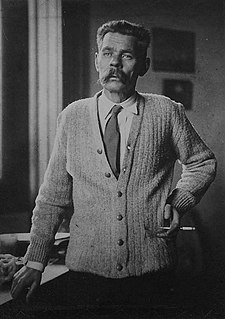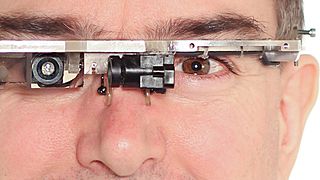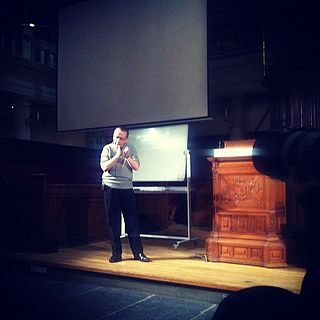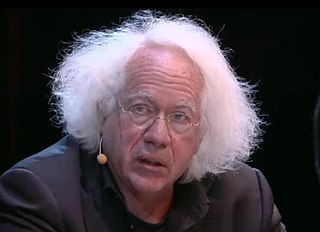Top 1200 Information Processing Quotes & Sayings
Explore popular Information Processing quotes.
Last updated on April 15, 2025.
In my view, while the single neuron is the basic anatomical and information processing-signaling unit of the brain, it is not capable of generating behaviors and, ultimately, thinking. Instead, the true functional unit of the central nervous system is a population of neurons, or neural ensembles or cell assemblies.
I try to be an active griever. I feel like we lean on time because of the trope 'Time heals all wounds.' And there is truth to that, but I don't think that it's absolute. I think that to grieve and to deal and cope, you have to be actively processing the information. Have your moments, be broken, and allow yourself to fully express pain.
Well, there's a question as to what sort of information is important in the world, what sort of information can achieve reform. And there's a lot of information. So information that organizations are spending economic effort into concealing, that's a really good signal that when the information gets out, there's a hope of it doing some good.
In a business setting, one's intelligence is crucial. Many problems faced by today's executives are unique and ill-defined. So, one's ability to analyze information and render a decision based upon the probability of success is imperative. What it comes down to is that all the knowledge in the world is useless if one has no means of processing and applying it. Organizations run on the brainpower of their people.
Ayahuasca is driven by sound, by song, by whistling. And its ability to transform sound, including vocal sound, into the visual spectrum indicates that some kind of information processing membrane or boundary is being overcome by the pharmacology of this stuff. And things normally experienced as acoustically experienced becomes visibly beheld, and it's quite spectacular.
Data isn't information. ... Information, unlike data, is useful. While there's a gulf between data and information, there's a wide ocean between information and knowledge. What turns the gears in our brains isn't information, but ideas, inventions, and inspiration. Knowledge-not information-implies understanding. And beyond knowledge lies what we should be seeking: wisdom.
I'm doing a lot of cognitive processing. I'm gathering research. I'm processing it. I'm arranging the data. I'm sorting out the narrative. I'm designing. It's almost as if I do all the cognitive work that you then don't have to do. I digest it, process it, and then offer something that's very easy for you to digest.
Well, there's a question as to what sort of information is important in the world, what sort of information can achieve reform. And there's a lot of information. So information that organizations are spending economic effort into concealing, that's a really good signal that when the information gets out, there's a hope of it doing some good...
At the most basic level, therefore, secure attachments in both childhood and adulthood are established by two individual's sharing a nonverbal focus on the energy flow (emotional states) and a verbal focus on the information-processing aspects (representational processes of memory and narrative) of mental life. The matter of the mind matters for secure attachments.
We couldn't build quantum computers unless the universe were quantum and computing. We can build such machines because the universe is storing and processing information in the quantum realm. When we build quantum computers, we're hijacking that underlying computation in order to make it do things we want: little and/or/not calculations. We're hacking into the universe.
Professionals refer to the stages of the intelligence cycle as collection, processing, analyzing and sharing information. In most cases, the implications and significance of raw pieces of information found in classified materials are reviewed and vetted to keep sensationalized and unsubstantiated accounts from being deemed credible.
War is an extraordinary condition to be in - to be, for example, in the combat information center of a warship [and behaving] as though you were merely processing credit card applications. [Instead,] the information you're processing is that an incoming missile is 15 kilometers away, now 10 kilometers away, now 5 kilometers. You have to separate yourself psychologically from the fact that your mortal existence may well end. That is the ancient reality of war.
Evolution is fundamentally creative, and when we align ourselves with the evolutionary movements of consciousness, the universe itself puts wind in our sails. Quantum thinking goes beyond the thoughts we're aware of; it includes unconscious processing, which doesn't just expand our boundaries, but can also free us from the suffering that conscious processing (sometimes known as 'the monkey mind') creates.
There's something immediate about the experience of reading a poem. It makes sense in my own mind, but I'm trying to figure out a way to articulate it... It's like looking at a painting: you're able to take in the totality of the work all at once, and so processing whatever information that painting is giving you is almost secondary to simply apprehending what's in front of you.
For me, making music in general is a therapeutic process. It began as a way for me to meet friends, and when you're a kid just screaming your face off, you're processing anger; you're processing all the things that happened to you, whether it's mistrust or confusion, whether you've gone through abuse.
It used to be that you needed a $500-million-a-year company in order to reach a worldwide audience of consumers. Now, all you need is a Steam account. That changes a whole bunch of stuff. It's kind of a boring 'gee, information processing changes a stuff' story, but it's going to have an impact on every single company.
Google, Amazon, Apple. Any number of cloud providers and computer service providers who can increasingly limit your access to your own information, control all your processing, take away your data if they want to, and observe everything you do; in a way, that does give them some leverage over your own life.
Television is altering the meaning of 'being informed' by creating a species of information that might properly be called disinformation. Disinformation does not mean false information. It means misleading information - misplaced, irrelevant, fragmented or superficial information - information that creates the illusion of knowing something, but which in fact leads one away from knowing.
I think we are definitely suffering from an information overload, but I believe that there is going to be better and better ways of organizing that information and processing it so that it will enhance your daily life. I just think that technology and information, it's overwhelming at the moment, but it's really going to make life better.
The term "informatics" was first defined by Saul Gorn of University of Pennsylvania in 1983 (Gorn, 1983) as computer science plus information science used in conjunction with the name of a discipline such as business administration or biology. It denotes an application of computer science and information science to the management and processing of data, information and knowledge in the named discipline.
The problem with natural language processing and the thing that really holds the technology back, is that when it crashes and burns, it's horrific. I think we would be in a position to really take a serious look at it, once two things happen. The interesting thing about a dialogue-choice system is that we've devoted so much into all kinds of other systems for processing, and dialogue choices use zero processing. So suddenly, if you want to have a great natural language processor, you need to dial down your graphics to make it work.
But [in bureaucracies], too, decision making takes place in a world full of unceratinties. Any actual system of information processing, planning and control will never be optimal but merely practical, applying rote responses to recurrent problems and employing a variety of contingency tactics to deal with unforeseen events.
Evolution is a process of creating patterns of increasing order....I believe that it's the evolution of patterns that constitutes the ultimate story of our world. Evolution works through indirection: each stage or epoch uses the information-processing methods of the previous epoch to create the next.
Psychedelics are illegal not because a loving government is concerned that you may jump out of a third story window. Psychedelics are illegal because they dissolve opinion structures and culturally laid down models of behaviour and information processing. They open you up to the possibility that everything you know is wrong.
Normally if you add information to information, you have more information. In case of my art, I destroy information, I would say, because the image is disturbed by the writings. In a way, they become pure imagery. For me it's really fun because it's an idealistic approach to images, to just play around with information and see what's happening.

















































